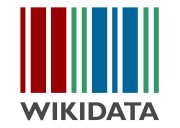Commons:Structured data/Project glossary
This glossary defines concepts that are often used when talking about the project Structured Data on Wikimedia Commons. See Commons:Structured data/About for a general introduction about the project.
| Glossary |
|---|
|
API. An API (Application Programming Interface) is a set of functions, procedures and tools that make it possible to build applications (software) that uses the content and/or features of another service. For instance, the API of Wikimedia Commons provides the media and data in Wikimedia Commons in a way that makes them easily re-usable by external software. Every MediaWiki wiki (such as any Wikipedia, Wikimedia Commons) offers an API. Wikibase, the software behind Wikidata, offers an API too, but with more detail. Therefore, when Wikimedia Commons will be enhanced with structured data via the Wikibase software, its API will become much more advanced. For a general introduction into the Wikibase API see https://www.mediawiki.org/wiki/Special:MyLanguage/Wikibase/API |
|
Data model. A data model is a model that organizes elements of data, and that standardizes how they relate to each other and to the real world. When we use this term in the context of the project Structured Data on Wikimedia Commons, we mean the basic building blocks that constitute a MediaInfo item. At the time of writing this glossary (October 2017) this data model is not finalized yet, but it will probably be comparable to the basic building blocks of a Wikidata item:  On top of this basic data model, the Wikimedia Commons and Wikidata communities can work together to build an ever-growing and -improving ontology to describe media files. |
 GLAM stands for Galleries, Libraries, Archives and Museums - or cultural and knowledge institutions. Many cultural institutions upload media files about their collections to Wikimedia Commons. In the project Structured Data on Wikimedia Commons, we work together closely with GLAMs around the world to learn about, and incorporate, their requirements for structured metadata in a media repository. |
|
Machine-readable data is data that can easily, and consistently, be read by computers, and that can easily be processed via computer programming logic. |
|
Metadata is data that provides information about other data. Metadata of a media file may include (among other things) information about its creator, copyright status, what is depicted in the file, and its creation date. https://en.wikipedia.org/wiki/Metadata |
|
Multi-content revisions. So-called multi-content revisions form an important building block for structured data on Wikimedia Commons (and on other Wikimedia projects). Multi-content revisions are groundwork to make information in Mediawiki wikis technically more straightforward to organize. The current wikitext pages will be able to be split out into separate documents (slots) with different functionality (such as infoboxes, categories, template documentation); these different slots can then be integrated into one page, sharing page-level functionality and one shared history. Specifically for structured data on Wikimedia Commons, multi-content revisions make it possible to store a structured data entity (an item, a property, a MediaInfo entity) and wikitext in the same page. Structured Commons is a major use case for multi-content revisions. |
|
Structured data is data with a high degree of structured organization. With more structure, it becomes easier to reuse data in other Wikimedia projects and by third parties; it also allows computers to process and 'understand' it. |
|
Structured Data on Commons is a project that provides the technical infrastructure to complement the wikitext, templates and categories on Commons with structured data. Read more about Structured Data on Wikimedia Commons in the FAQ. |
 Wikibase is the software that powers Wikidata, and that will also enable structured data on Wikimedia Commons. It consists of a set of extensions to the MediaWiki software. |
 Wikidata is a Wikimedia project. It's a free, collaborative, multilingual database. Wikidata collects structured data to provide support for Wikipedia, Wikimedia Commons, Wiktionary, the other wikis of the Wikimedia movement, and to anyone in the world.
|
